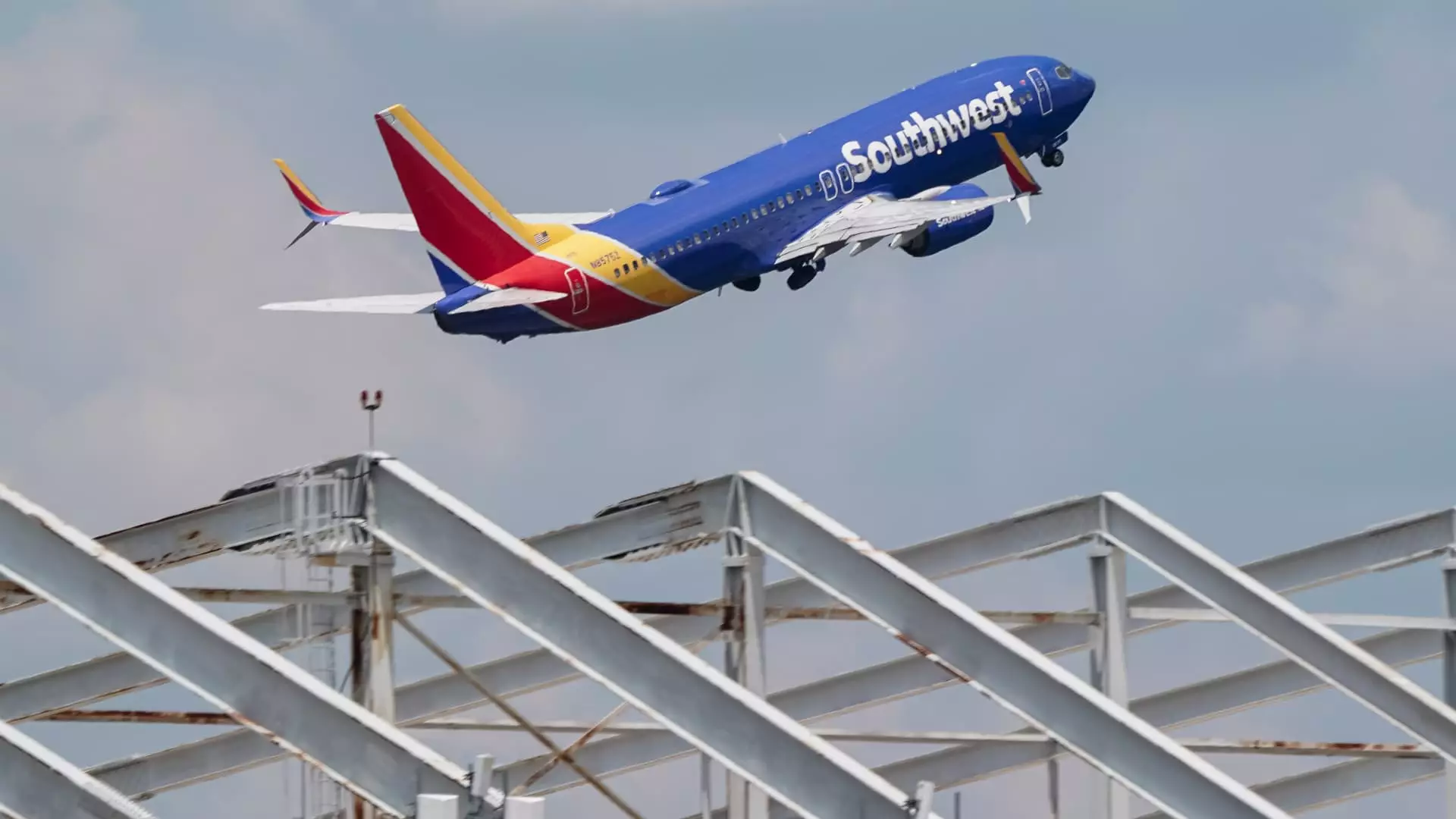In the third quarter of 2023, Southwest Airlines reported a decline in profits compared to the previous year, yet managed to exceed Wall Street predictions. This complicated scenario showcases the airline’s ongoing efforts to generate revenue amid pressures from activist investors, particularly Elliott Investment Management. Despite a year-over-year net income decrease of 65%, falling to $67 million—which translates to 11 cents per share—Southwest’s adjusted earnings, accounting for unique variables, fared better at 15 cents per share. This was notably above analysts’ expectations, signaling a resilient performance amidst external pressures.
A significant aspect of this quarter’s turbulence involved the influence of activist investor Elliott. Recently, the two parties entered into a deal which not only curbed the expectation of a proxy fight but also led to the implementation of six candidates from Elliott to join Southwest’s board. Such alliances often lead to strategic shifts; in this case, the agreement ensures that CEO Bob Jordan retains his position. This move reveals a broader trend in the airline industry where governance issues are becoming interwoven with financial performance, as stakeholders demand enhanced accountability and oversight.
Future Revenue Projections amidst Capacity Cuts
Looking ahead, Southwest Airlines forecasts a unit revenue increase between 3.5% to 5.5% for the fourth quarter. This projection comes alongside a planned 4% reduction in capacity, indicating an effort to optimize service offerings to meet changing consumer demands. Notably, the company asserted that travel demand remains robust, particularly as the holiday season approaches, suggesting that the leisure travel market is still on solid footing despite broader economic uncertainties. While other carriers also noted strong travel demand, the overall industry is grappling with strategies to improve profitability by scaling down unprofitable routes, which can positively impact airfare levels.
Alongside forecasting revenue growth, Southwest has initiated a broader three-year plan aimed at enhancing earnings before interest and taxes by $4 billion by 2027. The strategy is multi-faceted, including a stock repurchase scheme worth $2.5 billion and trimming down underperforming flights from major hubs like Atlanta to streamline costs. Impressively, Southwest announced an accelerated stock buyback program, further indicating confidence in its recovery trajectory.
In a transformative move, Southwest is set to abandon its long-standing open seating policy, which has been a defining characteristic of the airline’s service approach for over five decades. Instead, the airline will begin charging for seat selections, including extra legroom options, signaling a significant pivot in their operational model. This shift aligns with broader trends in the airline industry, underlining a reactive posture to evolving consumer expectations and revenue generation needs.
Southwest Airlines’ latest quarter illustrates a dynamic interplay of financial performance, strategic governance adjustments, and shifts in core business practices—all set against the backdrop of a competitive and rapidly changing airline landscape. While challenges persist, the proactive measures taken today may well lay the groundwork for a more resilient future.

